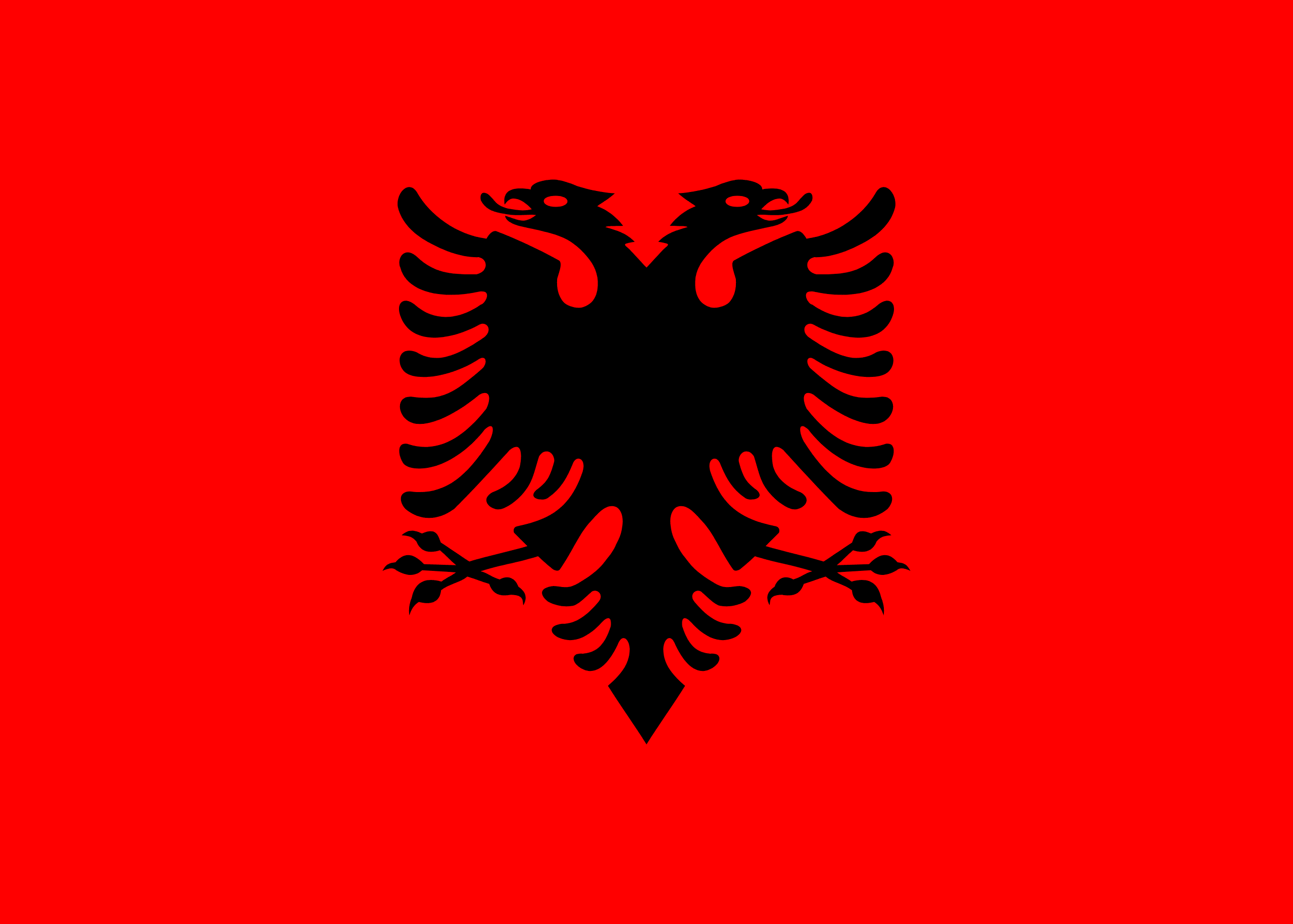Albania
Albania is one of Europe’s best-kept secrets — a land of stunning natural beauty, rich history, and warm hospitality. Nestled between the Adriatic and Ionian Seas, it boasts pristine beaches, dramatic mountains, and charming Ottoman-era towns. Explore ancient ruins in Butrint, hike the Albanian Alps, or relax along the Riviera’s turquoise coast. Tirana, the vibrant capital, offers a colorful mix of culture, cuisine, and lively nightlife. With affordable prices, fewer crowds, and a unique blend of East and West, Albania is a captivating destination for curious travelers seeking adventure, authenticity, and a taste of the unexpected.
This is your jumping off points for the latest Do Not Go Gently Travel blog’s posts on Albania!
The Do Not Go Gently Travel Blog uses affiliate links. If you make a purchase after clicking on one of these links, I may receive a small commission payment at no extra cost to you.
When planning my trip to Albania, I used the following resources.
Hotels – Booking.com
Tours and Activities – Get Your Guide and Viator
Flights – Trip.com
Travel Guide – Bradt Albania (Travel Guide) (Amazon Link)
eSIM – Yesim
Latest Posts from Albania
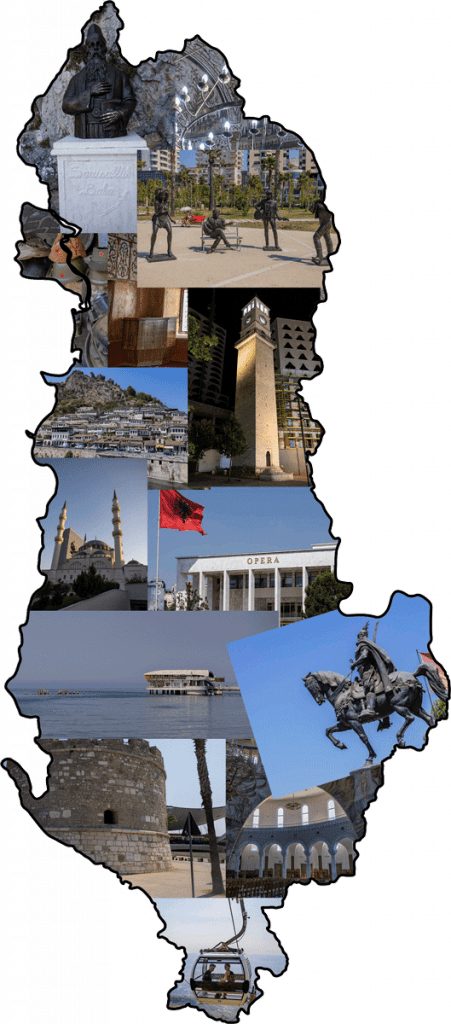
Exploring Albania: A Hidden Gem in the Heart of the Balkans
Albania has only recently captured traveller’s imaginations. It is only now emerging from the shadows of one of the most paranoid Communist regimes. This enforced insularity kept this beautiful Balkan country hidden until it finally broke free from Communist control in 1991. Now, it’s rare to find a ‘Places you must visit in 2024’ list without Albania, or its capital Tirana, prominently placed, and justifiably so. This Albania Travel Guide will show you just why it’s THE place in Europe to visit this year.
Albania offers a wide variety of options to travellers, no matter what they are looking for. Albanian culture is rich and varied, taking aspects of the various invaders who’ve controlled the country through its history. Hikers love its beautiful landscapes and challenging routes. Beach lovers take advantage of Albania’s Adriatic coastline, which is quickly opening up to tourists. Finally, foodies are discovering a cuisine influenced by both the Mediterranean and Balkans.
A Brief History of Albania
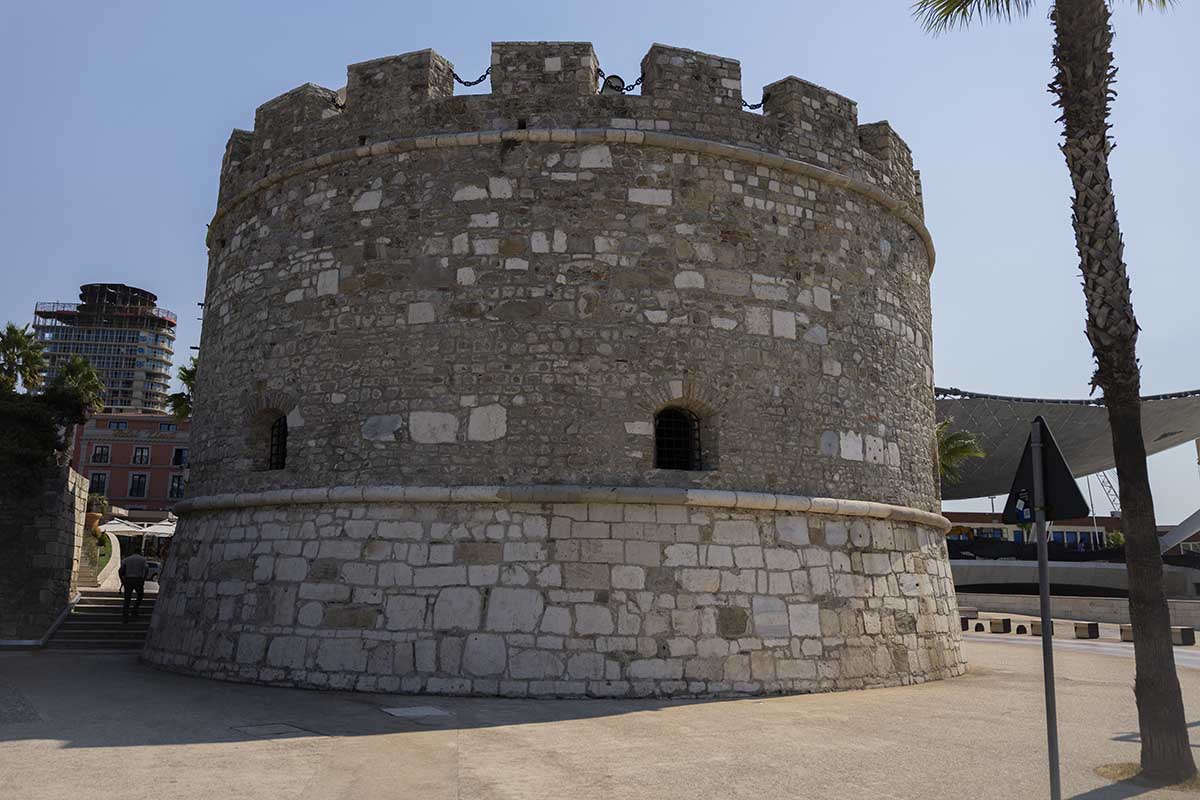
Albania is an ancient land, with a complex and turbulent history.
The Illyrians were the first known tribe inhabiting this area, although traces of human habitation in the region date back to the Paleolithic age.
An advanced and powerful culture, the Illyrians clashed with the Roman Empire until their conquest in 168 BC.
The fall of the Roman Empire coincided with the beginning of Byzantine influence on Albania. Other invasions followed by the Venetians, Slavs, and Normans.
The 15th century saw the Ottoman Turks invade Albania and the rise of national hero Skanderbeg, who resisted them for over 20 years. Despite this, the Ottoman Empire ruled Albania for 400 years, leaving a lasting impression on its culture and religion. Most significantly, Islam is the majority religion in the country.
Albania finally declared independence in 1912, but the following century proved chaotic. Fascist Italy invaded shortly before World War II, and the Nazis occupied it after Italy’s surrender.
The Communist era proved even more desperate for the country. Dictator Enver Hoxha’s regime was so extreme, it severed ties with both the Soviet Union and China. This made Albania one of the most isolated countries on the planet.
Albania became one of the last Soviet bloc countries to emerge from Communism after Hoxha’s death and student demonstrations in 1991. Today, it is a vibrant, forward looking democracy seeking membership of the EU.
Albania Travel Guide – Albanian Culture
Albania’s history of occupation has given it a culture influenced by many sources, Eastern and Western. The warmth and welcome received by visitors to Albania often surprises them. This reflects the position of hospitality as a cornerstone of Albanian tradition.
Traditional music and dance are still widely celebrated. Polyphonic singing, an ancient vocal tradition recognised by UNESCO, is popular in the southern regions. Dance forms such as the Valle, a type of folk dance performed in a circle, showcase the beauty of Albanian tradition. Modern Albania is also embracing contemporary music. Dua Lipa and Rita Ora, two of the most famous pop artists in the world, have Albanian roots.
Religion in Albania
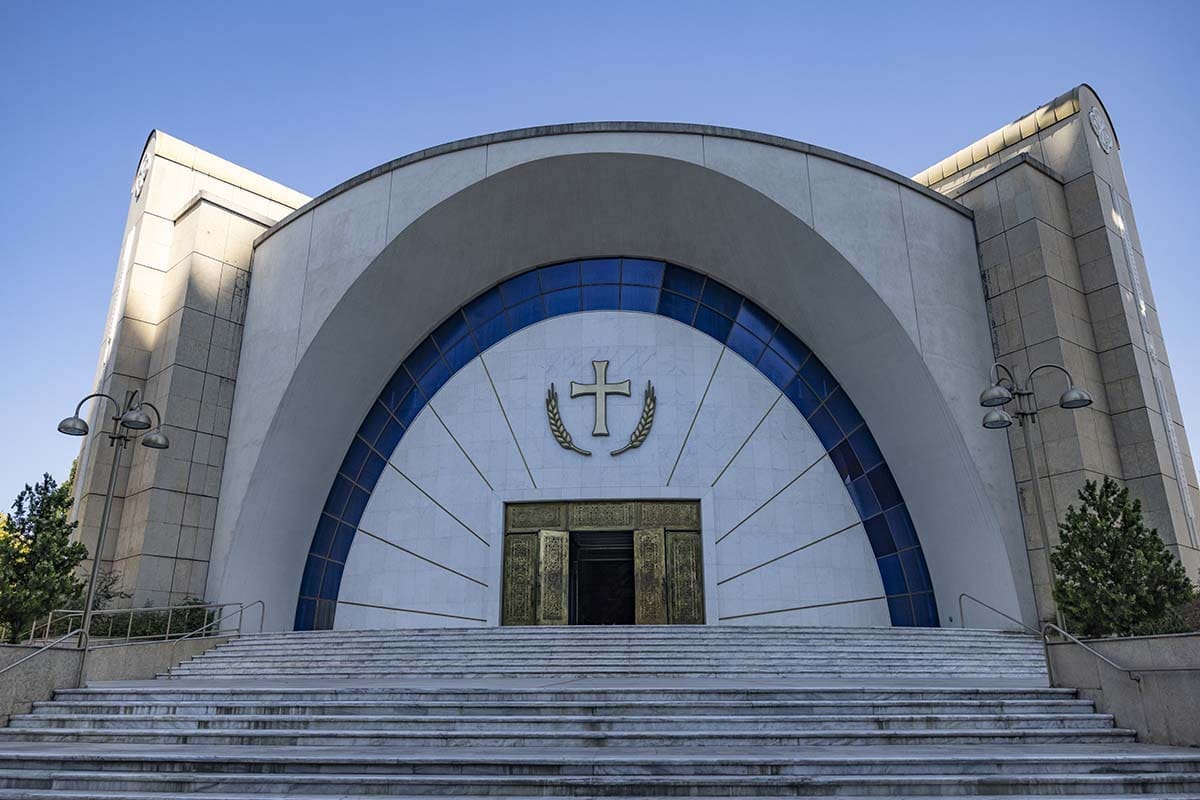
Albania is one of the most religiously tolerant countries in the world. Islam, Eastern Orthodoxy, and Catholicism exist comfortably alongside each other.
Islam became the dominant religion under Ottoman occupation, but the country has a rich diversity of religious beliefs.
The Balkan region has a history of conflict between religions, as the war in Kosovo demonstrated. Albania bucks this trend with a history of tolerance. This tradition is based on the concept of “besa”. Besa is an Albanian code of honour and hospitality which emphasises trust and respect. During World War II, Albania was one of the few countries in Europe where Jewish people were protected from the Nazis. Albania is the only country in mainland Europe, where the Jewish population was higher after the war than before it.
This changed under Hoxha’s Communist regime. Albania became the world’s first atheist state. The State banned religious practices and destroyed or repurposed many religious buildings.
Since the fall of Communism, this has been reversed, with several spectacular churches, mosques and cathedrals built. Today, Albanians are generally secular, with religion often seen as a personal rather than a defining cultural element.
Albania Travel Guide – Climate and Natural Beauty
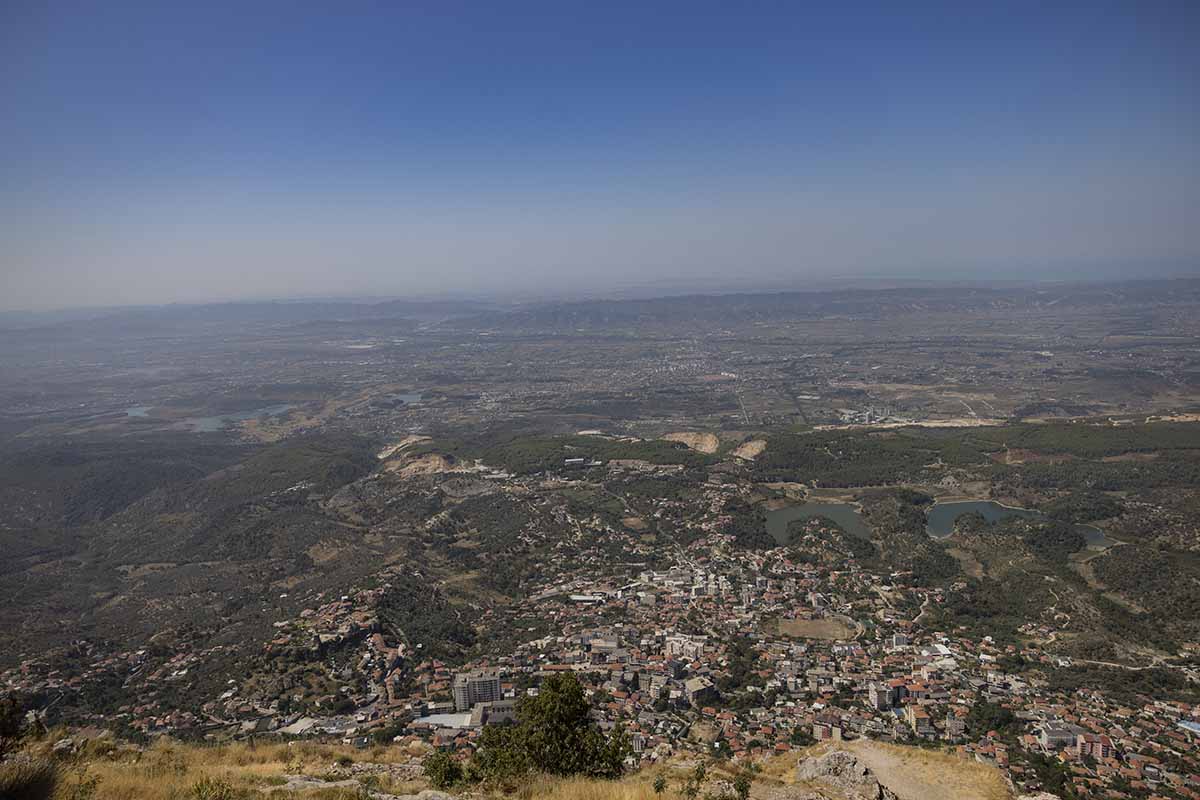
Albania is a beautiful country with a varied geography. The Ionian coast boasts some beautiful, unspoiled (for now) beaches. Inland, rugged mountain terrain is a favourite of hikers.
The country experiences a Mediterranean climate along the coast. Summers are hot and dry summers, winters mild and wet winters. The interior mountains see colder winters with heavy snowfall, which attracts many winter sports lovers.
Albania is also rich in biodiversity, home to a wide variety of flora and fauna. Lake Shkodër, the largest lake in Southern Europe, spans the border with Montenegro and is a major habitat for birds. Prespa Lake, shared with North Macedonia and Greece, is one of the most ecologically significant areas in the Balkans. The endangered Dalmatian pelican can be found here.
Albania Travel Guide – Albanian Cuisine
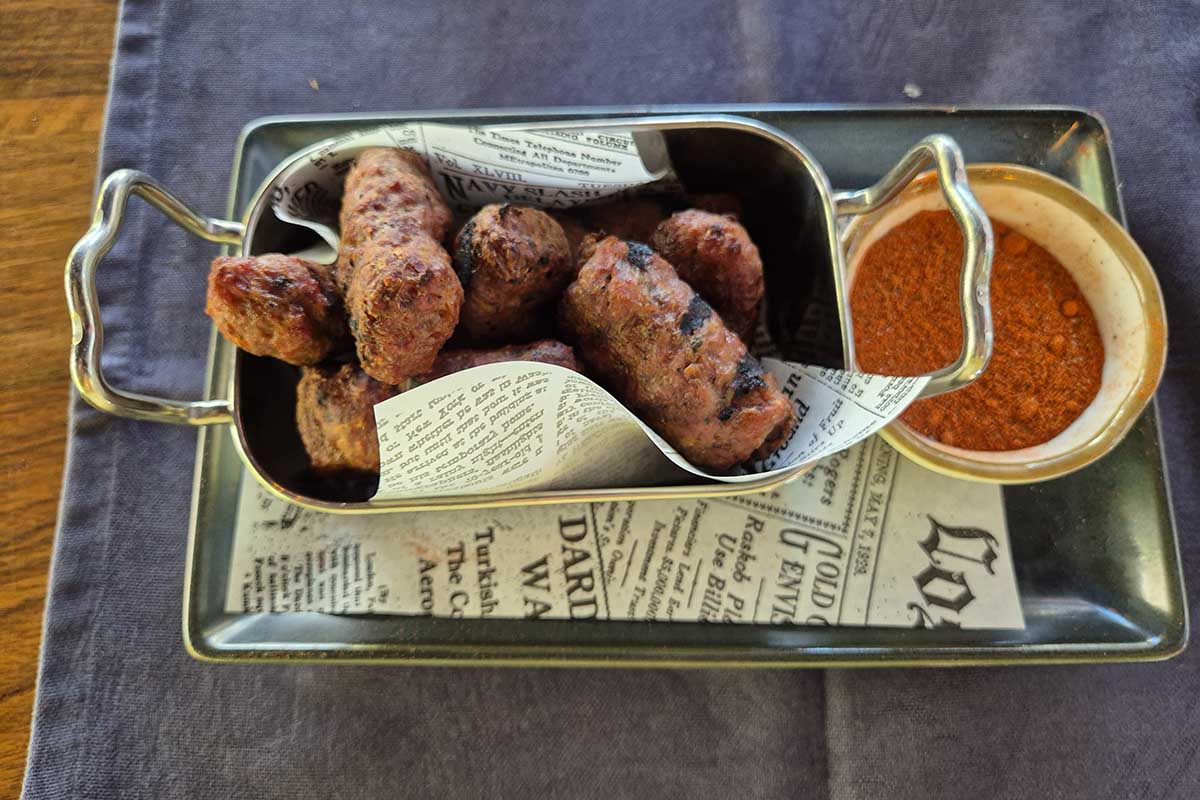
Every Albania Travel Guide should sing the praises of Albanian cuisine! Foodies visiting Albania will find an intriguing culinary tradition. Albanian food is a tantalising blend of Mediterranean and Balkan flavours. Albanian recipes are based on fresh vegetables, olive oil, and herbs. Many traditional dishes resemble those in Greek, Turkish, and Italian cuisine. This is not a surprise given Albania’s history of occupation and international trade.
Some must-try dishes include byrek, a savoury pastry filled with spinach, cheese, or meat, and tavë kosi, a unique baked lamb and rice dish with a yoghurt base.
Fish dishes, not surprisingly, dominate menus along the coast. Inland regions offer hearty meat dishes, such as fergese, a comforting mix of peppers, tomatoes, and cheese, often served with lamb. Desserts are not to be missed either, baklava and trilece (a sponge cake soaked in three types of milk) are especially popular.
Albanian wine is virtually unknown outside the country. However, it has a long history of winemaking. Local varieties, such as Shesh i Bardhë (white) and Shesh i Zi (red), are gaining international recognition. Visitors to Albania have often cursed Albania’s strong raki the morning after. This distilled grape brandy is traditionally offered as a gesture of hospitality.
Conclusion – Why Albania Should be on your Bucket List
Albania is a land of contrasts. Here, ancient traditions meet modern influences, rugged mountains frame azure coastlines, and every corner reveals layers of history and culture. Travellers looking to experience that barely trodden path will find it in Albania.
Albania’s history, culture, religious tolerance and breathtaking landscapes make it a destination with something for everyone.
Whether you’re exploring the cobbled streets of Gjirokastër, lounging on the beaches of the Albanian Riviera, or trekking through the Albanian Alps, Albania promises a rich and rewarding adventure at every turn.

